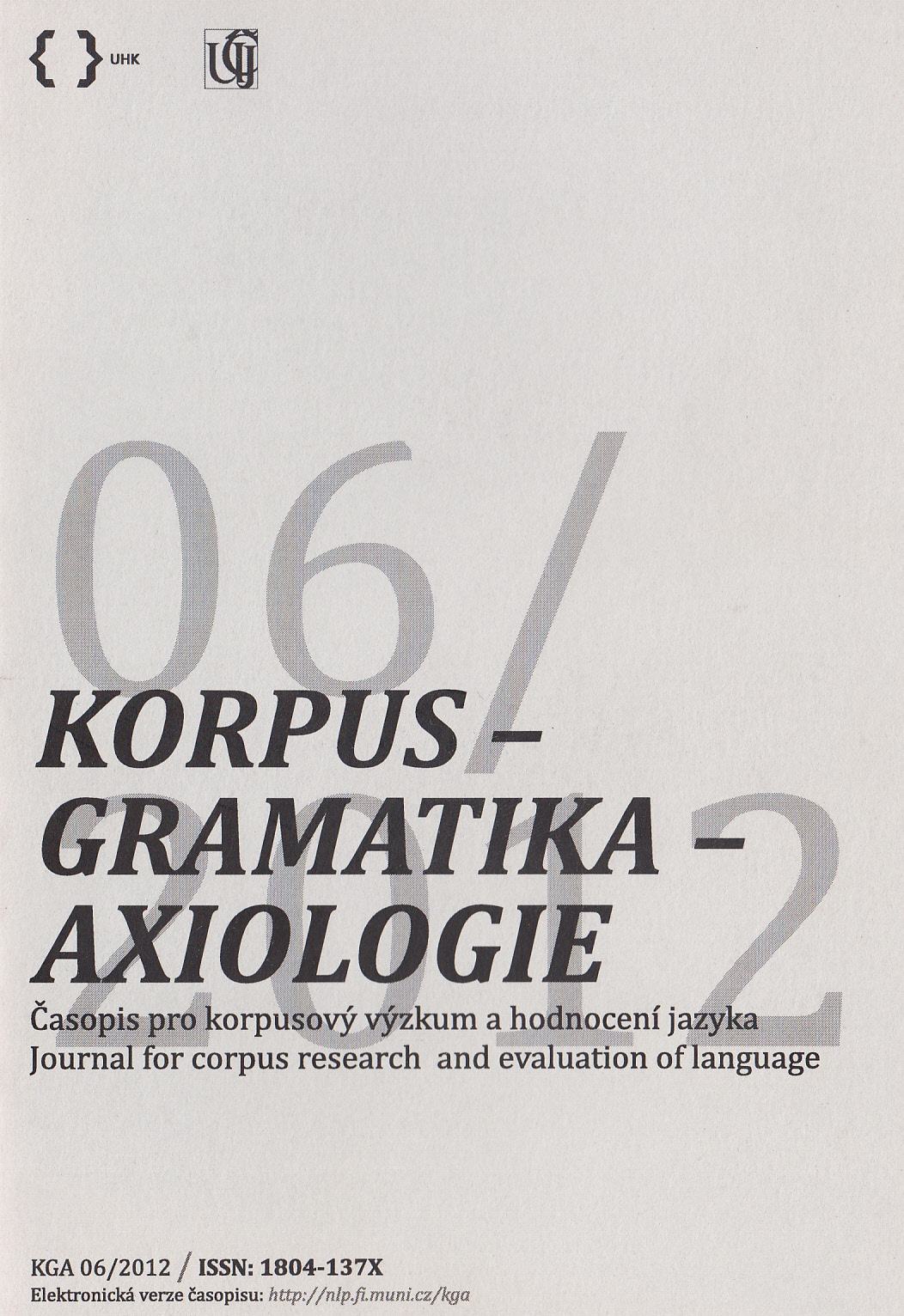Indikativische Tempora in Inhaltssätzen im Deutschen
Indikativ Tenses in German Nominal Content Clauses
Author(s): Marta KoutováSubject(s): Language studies, Language and Literature Studies, Applied Linguistics, Descriptive linguistics, Western Slavic Languages
Published by: AV ČR - Akademie věd České republiky - Ústav pro jazyk český
Keywords: indicative; relative tenses; subordinate content clause; indirect speech; corpus
Summary/Abstract: The article deals with the development of analytic approaches to the use of specific tenses in the indicative mood in German subordinate content clauses, as presented in German linguistics. The author presents the results of her own research based on the examples of subordinate content clauses found in the Mannheim corpus of German texts.According to the latest German scholarship, there are two principles governing the tense distribution in the indicative mood in subordinate content clauses introduced by a verb in the past tense: 1. the perspective of speaker 1, i.e. the point of view of the characters in the story, 2. the perspective of speaker 2, i.e. the point of view of the narrator. The first principle is comparable to the principle governing the use of the tenses in subordinate content clauses in Slavic languages, the second principle is comparable to the sequence of tenses used in English and other Germanic languages. The first principle finds its use more in the spoken or non-standard discourse, the second one is typical for standard German.The present paper focuses on sentences consisting of a past-tense main clause and one embedded content clause that allows the alternation between present tense and preterite (...dass sie schwanger ist vs. ...dass sie schwanger war), as attested in the Mannheim corpus. The analysis essentially confirms the existing approaches and theories but it also brings new findings, which call for adjusting the current views and which pose new questions for more comprehensive corpus-based research.
Journal: Korpus - gramatika - axiologie
- Issue Year: 2012
- Issue No: 6
- Page Range: 20-38
- Page Count: 19
- Language: German

